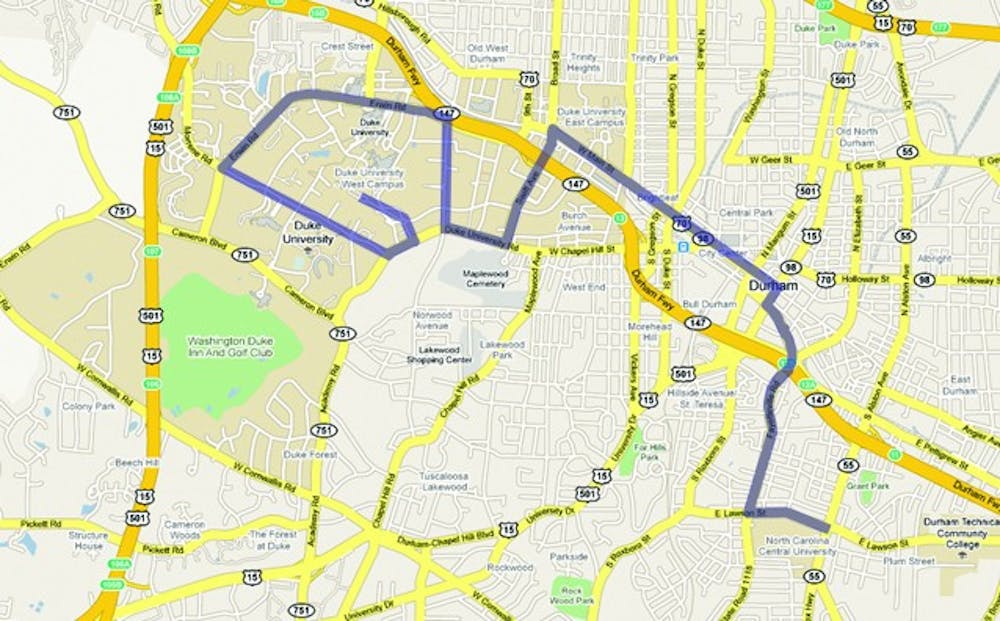Duke is partnering with the city of Durham to implement a new bus line, which would connect Duke to downtown Durham, said Phail Wynn, vice president for Durham and regional affairs.
Although still in developmental stages, the Duke-Durham connector is projected to start running in late Spring 2010.
The proposed route, which is not yet finalized, includes both circulator and connector transportation functions. The bus would connect Duke to downtown Durham and stop at various locations in the city. The route would run roughly along West and East Main Street and would include stops near the Medical Center, the American Tobacco Campus and North Carolina Central University, Wynn said.
“The feeling is we need to keep [the route] as linear as we can, but at the same time hit as many stops as we can to make it as convenient as possible,” Wynn said.
The city started planning a downtown circulator a year ago, said Dan Jewell, a member of Durham Area Designers. Jewell is a co-facilitator of the Downtown Durham Enhanced Transit Steering Committee, the group that is developing the bus system.
“We thought maybe we could take some of the energy and funding that has been set aside for that and turn it into this east-west route, which we think will be more beneficial to more people in Durham,” he said.
Duke has already provided $375,000 to match a $3 million federal grant, which allowed for the purchase of six hybrid diesel buses. The proposed line is a fare-free system, which would run from 6 a.m. to 3 a.m., with wait times ideally less than 20 minutes. In its entirety, the route is expected to take no longer than 30 minutes, Wynn said.
The buses will allow for the approximately 2,000 Duke employees who work downtown to easily commute to and from campus and their offices, Wynn said. Additionally, the buses will enable Duke students to take public transportation to downtown Durham.
“We want the students to have the opportunity to fully enjoy and appreciate all of the cultural amenities that are now available in downtown Durham,” Wynn said. “This is a new, transformed downtown that we want to make sure all of our students are fully aware of.”
The Duke-Durham connector will provide a number of other benefits, including decreased traffic congestion and reduced carbon emissions, Wynn said.
Durham has taken a number of measures to cover the cost of the new bus line, Wynn said. The city will receive $338,000 in federal stimulus funds annually for two years and add a $5 registration fee for motor vehicles, which is expected to accrue roughly $800,000 a year. Additionally, the city is planning to propose a referendum that would add half a cent to the sales tax. This referendum will most likely be delayed until Fall 2011, Wynn said.
Since the bus line is still in the preliminary stages, Duke Parking and Transportation declined to comment on its specifics.
Jewell said the ultimate goal is to make this bus system convenient for everyone.
“We want people to get more used to using public transit,” he said. “We want to let them know it can be fun, it can be frequent, it can be safe.”
Get The Chronicle straight to your inbox
Signup for our weekly newsletter. Cancel at any time.

